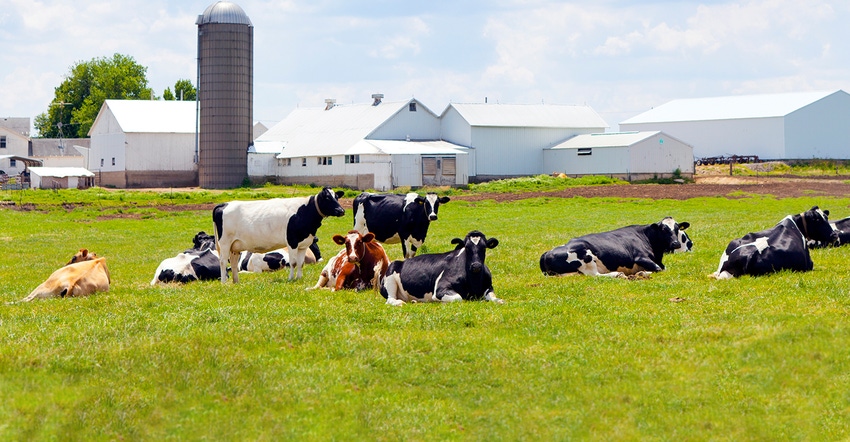November 16, 2018

January will mark the start of the fifth year of declining milk prices. I’ve talked to a number of dairy farmers in recent weeks and nearly all of them are showing signs of stress due to continued low milk prices. Some can’t get operating loans, others are struggling to pay their bills and their help, and a few are weighing their options about whether they want to continue “to live like this” or sell out.
In 2017, farmers quit milking cows on 502 Wisconsin dairy farms. The number will be higher in 2018. Through the first 10 months of the year, Wisconsin has lost 584 dairy farms, according to the USDA Agricultural Statistics Service office in Madison, Wis.
We all lose
Dairy farmers going out of business is a loss to the community and the entire state. While some dairy economists believe it decreases the number of cows in the national milking herd and increases the odds of survival for the remaining dairy farms, I don’t believe that is the case.
Wisconsin has lost more than 1,086 dairy farms in the past two years, dropping to just 8,217 dairy farms as of Nov. 1. During that time, cow numbers did not decline and U.S. milk production increased 2.4%. When a farmer quits milking cows, the cows and heifers are sold to other farms, and the same number of dairy cattle are milked on fewer farms. Meanwhile, the businesses those dairy farms supported struggle to pay their bills and workers.
The rule of thumb says it takes seven dairy farms to support one business on Main Street. With the loss of 1,086 dairy farms in the past two years, if my math is correct, then 155 Wisconsin businesses closed their doors in the past two years.
I’m not trying to add to the doom and gloom. My hope is that all of you who are still milking cows and really want to continue milking will find some way to do that. I’m sure most of you have already tightened your belts a few notches during the past four years, but here are some out-of-the-box ideas that you may not have tried to help lower costs or increase cash flow:
1. Sell any equipment you don’t absolutely need. Even if it only brings in $1,500 to $2,000, that’s something. Since the equipment is likely mortgaged property, use the money to pay down your loan at the bank.
2. Don’t bother trying to sell cows or heifers. I’ve heard good cows are bringing only $1,000, each and some have sold as low as $600 — barely over market price. So, think about selling the Back 40. Or maybe you have an 80-acre parcel down the road that you could live without. The good news is farmland values in Wisconsin have not declined. In fact, they continue to increase. In many cases across the state, you can sell bare cropland for $4,000 to $10,000 an acre, depending on where your farm is located. That 80-acre parcel of land could fetch $480,000 if it sold for $6,000 an acre.
Of course, you will want to talk to your lender before making such a decision. You will likely have to pay off any mortgage you have on the farm before the lender will let you use some of the money to pay bills.
3. Breed the bottom third of your cows to AI beef bulls. You could use AI sexed semen to get bull calves if you don’t want beef heifer calves. Beef calves are worth more than Holstein bull calves. You could sell the calves, or if you have feed and room, you could feed out steers. Talk to your county Extension ag agent if you need more information about raising beef.
4. Live with your on-farm children. This one isn’t for everyone, but if you have two houses on the farm, consider having your adult child or children move back in with you, or you could move in with them! The second house on the farm could be rented out. If the home is in good condition, rent in some areas could bring as much as $900 to $1,000 per month.
5. Get a job. Maybe one family member could get an off-farm job. The general economy is strong, and the unemployment rate hasn’t been this low in 50 years. Even though the minimum wage is only $7.25 an hour, most jobs pay at least $10. An extra $250 a week adds up and could help pay bills and buy groceries.
Maybe these ideas are a bit off the wall, but hopefully they will inspire you to come up with some other unconventional ideas that will help keep you farming.
Happy Thanksgiving and Merry Christmas!
I hope all of you will take time to gather with your family and celebrate the upcoming holidays. It is important to get together with family and friends, especially during tough times. We all need to share a few laughs over some good food and remember what’s really important in life. Cheers!
Comments? Email [email protected].
You May Also Like




